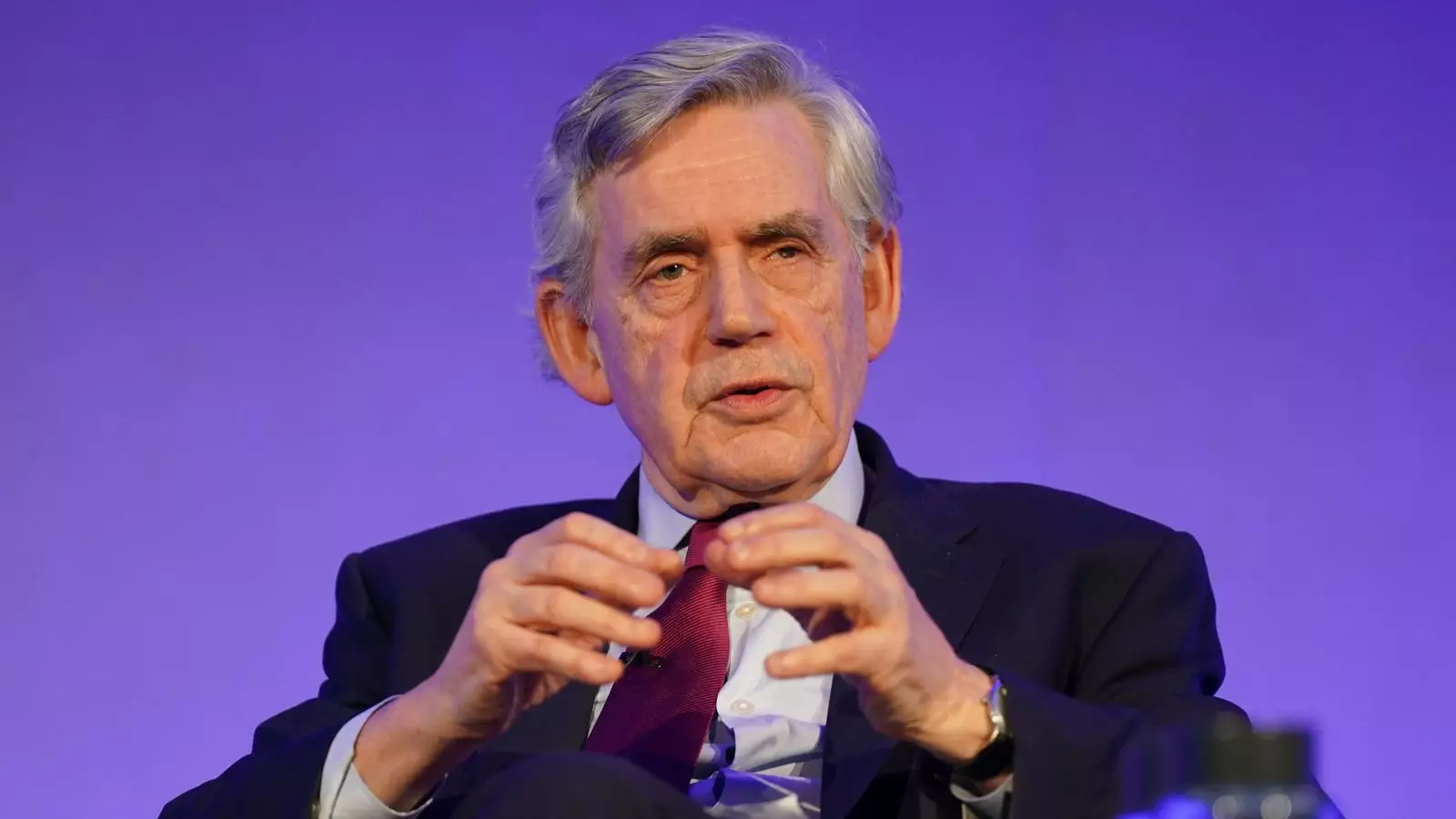Pensioners in the United Kingdom often occupy a precarious position within the socio-political landscape. For years, successive governments have grappled with the responsibilities of caring for this demographic, and the narrative has recently taken a concerning turn. Former Labour Prime Minister Gordon Brown has had his say, advocating for fairness towards pensioners while also suggesting that affluent citizens might not deserve state benefits. The implications of these decisions are much deeper than just a fiscal discussion and delve into the essence of how we evaluate social responsibility in a modern welfare state.
The recent statement by Brown regarding winter fuel payments illustrates a broader ideological rift in contemporary politics between equity and economic prudence. His assertion that the wealthiest individuals could be exempted from certain benefits reflects a more pragmatic approach to welfare, but it also raises profound ethical questions. Initially designed as a universal benefit to cushion pensioners against the cold realities of winter, the urge to means-test this payment raises concerns about dignity and respect for those who have spent their lives contributing to society.
The Dilemma of Means-Testing
Means-testing, while ostensibly a tool for responsible governance, often unintentionally breeds stigma. By evaluating the worthiness of individuals based on their wealth, we risk reducing a whole group to mere numbers on balance sheets, blurring the lines between need and merit. The winter fuel payments, originally framed as a universal safeguard for all pensioners, have now been mired in a political quagmire that questions seniors’ dignity. What was once a blanket offering designed to prevent hardship has now become a negotiable commodity, open to scrutiny and debate.
Underlying Gordon Brown’s remarks is the belief that society should not be pushing anyone into poverty, particularly those who have dedicated their lives to work or public service. But this viewpoint clashes with the government’s effort to rein in spending and manage public finances. During a period where Labour faced significant political backlash, particularly after local elections, the decision to scale back such universal benefits was viewed as a tactical move to manage a perceived fiscal crisis. However, the rush to impose economic constraints reveals a critical misunderstanding of how our most vulnerable citizens are experiencing the cost-of-living crisis.
A Costly Political Misstep
Responding to these political pressures, Keir Starmer, the current leader of the Labour Party, has committed to reconsidering who qualifies for winter fuel payments. His statements hint at the recognition that, while austerity measures may provide short-term fiscal relief, they carry significant long-term repercussions in public trust and societal cohesion. The hesitance towards fully reversing mean-testing is a reflection of a party at a crossroads. On one hand, they face the arduous task of maintaining fiscal responsibility, while on the other hand, they must ensure that their policies resonate with the party’s foundational values of fairness and support for the marginalized.
Every decision surrounding winter fuel payments seems to echo larger societal attitudes towards welfare recipients. When governments make these striking choices that prioritize budgets over people, they expose their values—or lack thereof. The change in eligibility that slashed pensioner access from 11.4 million to a mere 1.5 million not only highlights the failures of economic strategy but also raises pressing questions about the morality of policy-making. Are we prepared to cost out compassion? Are we willing to let political strategy trump people’s needs?
The Path Forward: Compassionate Governance
For every pound saved through means-testing, there is a profound risk of losing the soul of welfare. The need for a fundamental shift in approach is ever-so-clear: a commitment to social justice must be at the core of any future policies. Political leaders must strive for more comprehensive, positive change that doesn’t shy away from embracing universal benefits, particularly when it comes to the people who have built this nation. The precedent must be set that our citizens, regardless of wealth, should not be left in a position of vulnerability.
As discussions around the future of winter fuel payments continue, it is imperative that our leaders embrace compassion over mere fiscal calculations. A truly progressive society understands that the strength of the community is evaluated through how it treats its most vulnerable members. The challenge lies in reshaping our welfare landscape, restoring dignity, and fostering an environment where no one is forced to experience poverty after a lifetime of service.


Leave a Reply